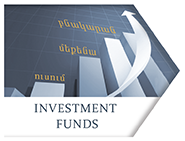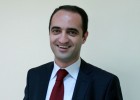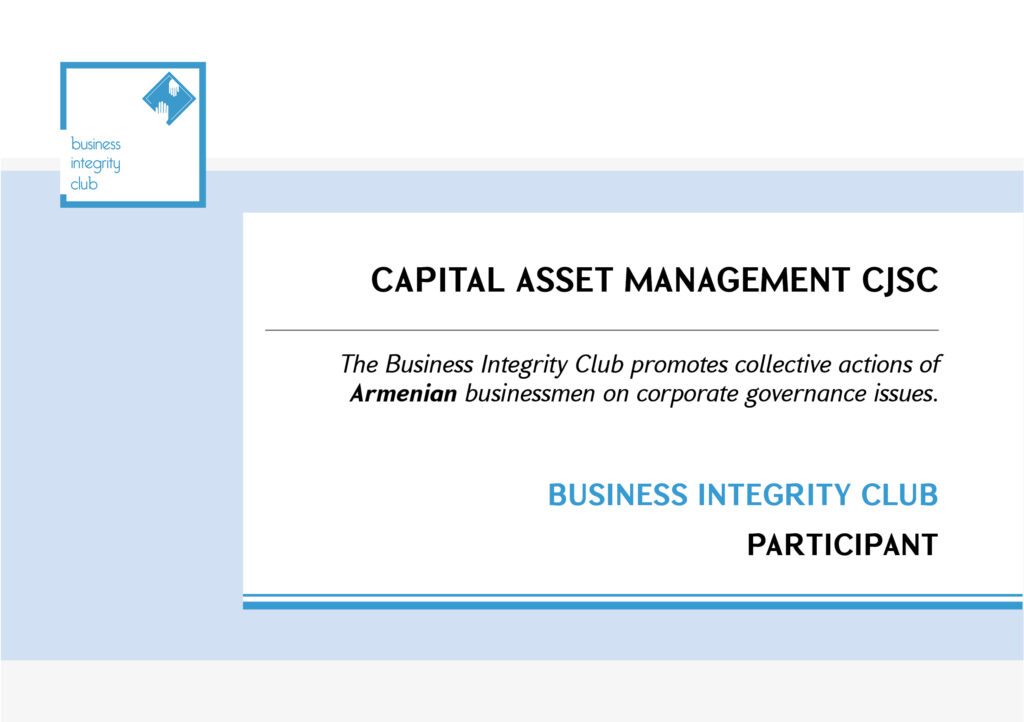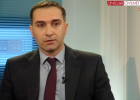Banks.am (25.12.12) Interview with Hayk Voskanyan, CEO of “Capital Asset Management” CJSC “In 2012 Capital Asset Management became the first company in Armenia to register as an investment fund manager. At present the Company is in the process of registering 2 voluntary pension funds and 1 investment fund which will start operating in the first quarter of 2013. And despite the fact that currently Capital Asset Management almost entirely is occupied by more »
Capital Asset Management: “Renaissance” is not the appropriate word.
Banks.am (25.12.12)
Interview with Hayk Voskanyan, CEO of “Capital Asset Management” CJSC
“In 2012 Capital Asset Management became the first company in Armenia to register as an investment fund manager. At present the Company is in the process of registering 2 voluntary pension funds and 1 investment fund which will start operating in the first quarter of 2013. And despite the fact that currently Capital Asset Management almost entirely is occupied by administrative matters and to some extent has remained distant from the latest developments in the securities markets, the notable one of which is the issuance of dollar-denominated bonds, the Company’s Chief Executive Officer, Hayk Voskanyan has agreed to comment on the latest market developments and provide economic forecasts for 2013.
– How is the registration process coming along for the first investment and voluntary pension funds in Armenia?
– As you know, on October 18th of this year, we registered as the first investment fund manager and have a license for investment funds and voluntary pension funds. At this time we are finalizing the documents to apply to the Central Bank for registering the investment fund and two pension funds.
-Let’s start with the investment fund. What kind of fund is it and what is its objective?
– The investment fund is a way to save, another alternative to a bank deposit. The “consumers” of the investment fund will be those individuals, that wish to save or corporate clients that will use this instrument for cash management.
Share in the investment fund is a liquid asset. At any time it can be redeemed and the invested money returned. Today the banks offer similar instruments, however an early redemption before the maturity date forfeits part of the interest. In case of the investment fund such loss is not applied. If the redemption value of the share is 1500 AMD then the individual receives the same amount irrespective of the maturity date.
-Let’s turn to pension funds: what is the reason for registering two pension funds?
– Our pension funds will have different investment policies. The first will consist of 100% fixed income instruments, and the second will be a conservative fund, which means that up to 25% of fund assets may be invested in stock.
People with less tolerance for risk will prefer the fixed income fund, while those who are younger and have more time to save, it makes more sense to select a conservative fund, which contains some equity.
There will be two schemes, one based on employer contribution, and the second, where the individual makes their own contribution. There are tax benefits in both cases. In case of employee contribution up to 5% of taxable income can be deducted for reducing income tax. In case of employer contribution up to 150% of contribution amount can be deducted for reducing profit tax, however not exceeding 7.5% for each employee account.
– Are you content with the legislation that regulates voluntary pension funds?
– The limits for voluntary pension funds are quite generous allowing up to 50% investment in foreign assets, and up to 50% investment abroad. It makes sense.
– And, in general, what is happening in the market? Are the rest of financial market participants preparing to launch funds as well?
– As you know, we are the only registered fund manager so far.
Among market participants there is interest in the mandatory pension funds, however, regarding the voluntary component I do not have any information. We only know that one of the banks offers a pension deposit scheme.
Since this type of business activity is entirely new in Armenia, we must put in a lot of effort to “awaken” the demand for it, which surely exists. Next year, the government will launch a large-scale awareness campaign regarding pension reforms. As a result the people’s awareness will increase so that it will be possible to talk about real demand.
We plan to work with employers and present them the essentials of the pension reform. We have preliminary arrangements with a number of employers, who intend to use this instrument as socially responsible employers as well as provide new incentives for their employees. We will also work with individuals who need to understand the difference in the investment policy of different funds and be able to make a selection.
Voluntary pension schemes will be offered side by side with a mandatory component without replacing one another. The restrictions on the management of assets for the mandatory component are much stricter than for the voluntary component. Besides, for persons over 40 saving in the mandatory component is restricted to 5%, but in the voluntary component they can save a lot more. In this respect the voluntary component has an advantage over the mandatory pension scheme.
– Recently the Central Bank allowed the issue of dollar-denominated bonds, which since has been followed by 3 issues. Can we consider this innovation as viable means of allocating pension fund assets in the future?
Of course, it is a valid assumption, if the investment policy of the pension fund allocates certain amount to invest in foreign assets then this provides an additional opportunity for pension funds to invest in foreign currency assets in the Armenian market.
However, I think the main purpose for this move was aimed at stimulating domestic capital market. I am sure that the dollar-denominated bond issues will continue and may attract foreign investment into Armenia.
– In the last 2-3 years, we have not seen frequent public offerings in the Armenian capital market. Would it be appropriate to say that the entry of bonds denominated in foreign currency is a sort of “Renaissance” in the Armenian capital market?
“Renaissance” is not the appropriate word, because this took place as a result of just one administrative change. Moreover, even those issues that we saw in the years 2007-2009 were again the result of an administrative solution – the market was given the opportunity to have a relatively liquid instrument.
If we analyze a bit deeper last bond issues, we’ll see that at least two of them have been made for refinancing existing obligations, in other words, it was just a replacement of one debt instrument with another.
Meanwhile, for real development of capital markets, we should have products that will be targeted toward business project implementation, enterprise development, using long-term securities to finance capital expenditures. In any case, I think that it is the administrative solutions and a stimulating policy implementation which will ensure the development of capital markets at a natural pace.
– Armenia’s business community enters 2013 with numerous legislative changes, which it has yet to adapt. Besides, relative to the previous year, in 2012 the foreign investment in Armenia has significantly fallen. What socio-economic developments can we expect in 2013 given these conditions?
– In general, there is lack of optimism in the economy and the same situation is prevalent in the world. This is natural, usually during economic expansion people become overly optimistic (actually that’s what causes economic “bubbles”) and during contraction overly pessimistic which hampers economic growth because consumption is reduced. In our economy this situation was accompanied by necessary reform implementations. Certain reforms succeeded, for others it is too early to make a call, although uncertainties objectively influence general economic situation.
In my opinion, 2013 will not be much different than 2012 as far as its impact on the economy is concerned. We have an election year, but the government has taken a bold measure, which perhaps is the most important reform in Armenia since land privatization. We will see the fruits in 20-30 years. However, it is the beginning of something that in a few years will essentially change the economic structure of our country. I do not want to imply that this will be solely due to pension reforms, but rather a new business culture is developing in Armenia.
Of course, the business environment does not like frequent changes. If something changes very frequently, this creates uncertainties for business. The most vulnerable areas of Armenia’s business environment continue to remain taxation and customs. Changes there will have an immediate impact on the business environment in Armenia. The changes currently taking place in those areas instill hope that the situation will improve.
In terms of foreign investment, I think it is not only shaped by internal economic situation, but also by other factors related to external economy, in particular by global economic uncertainties that possibly compel businesses to delay or review their expansion plans.
Hayk Voskanyan interviewed by Ruben Harutyunyan”.










 PALM project has been USAIDs’ primary activity aimed to support Armenia’s pension reform implementation, strengthen the retirement income system, and enhance the competitiveness of the labor market. Between 2009-2012, PALM assisted the Government of Armenia, individuals, households, and vulnerable communities to better manage social risks, such as old age, disability, and unemployment. The project provided technical assistance to the Armenian government to build the foundation for the multi-pillar pension system that will come into force in January 2014. The new pension system will provide each citizen of Armenia with a possibility to improve their financial security in old age through diversifying the sources of income, including making retirement savings in a private pension fund – a concept that is new to Armenia.
PALM project has been USAIDs’ primary activity aimed to support Armenia’s pension reform implementation, strengthen the retirement income system, and enhance the competitiveness of the labor market. Between 2009-2012, PALM assisted the Government of Armenia, individuals, households, and vulnerable communities to better manage social risks, such as old age, disability, and unemployment. The project provided technical assistance to the Armenian government to build the foundation for the multi-pillar pension system that will come into force in January 2014. The new pension system will provide each citizen of Armenia with a possibility to improve their financial security in old age through diversifying the sources of income, including making retirement savings in a private pension fund – a concept that is new to Armenia.